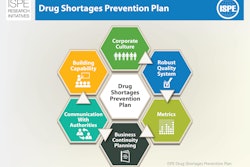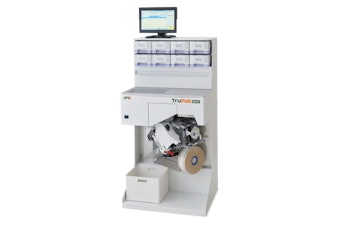Ever since the Drug Quality and Security Act (DQSA) was signed into law last November, more and more people are asking the question, “Does my drug have to follow the DQSA?” Recently I was on a monthly industry call put on by one of the “Big Three” wholesale distributors to discuss the Drug Supply Chain Security Act (DSCSA), which is Title II of the DQSA.
I was surprised how many people asked the wholesaler if their specific product was covered or exempt. Of course, asking a wholesale distributor if your own product must follow a particular Federal law is not likely to get a usable response and that was true in this case, but it did not stop the next person from asking the same kind of question.
In fact, no one can answer that question for you, even the FDA. I can’t answer that question for you. Only YOU can answer that question based on your knowledge of your product’s characteristics and a careful reading of certain provisions of the DSCSA. I can help you with that part.
Application of the DSCSA
In general, many of the provisions of the DSCSA that are related to the movement of product in the supply chain apply only to prescription drugs “…in a finished dosage form for administration to a patient without substantial further manufacturing (such as capsules, tablets, and lyophilized products before reconstitution.)“ So if the FDA does not consider your drug to be a prescription drug (“Rx Only”), then it does not need to comply with the DSCSA.
Formally, a “prescription drug” is defined by the law as a drug for human use that is subject to the Food, Drug and Cosmetics Act, Section 503(b)(1). This apparently exempts drugs that are strictly for use only in animals.
Further, if your drug must be sold “behind the pharmacy counter” in some states, that does not make it a prescription drug. Those are state laws and the FDA does not pay attention to state laws when regulating drugs nationally. Even if some states require your drug to be dispensed by a pharmacist only to those who have a physician-issued prescription, if the FDA has not classified it as a prescription drug, then you are off the hook when it comes to following the DSCSA. In these cases, the FDA considers your drug to be Over-The-Counter (OTC), and therefore exempt.
If your product is a device—even if the FDA requires your device to be dispensed only with a physician-issued prescription (“Rx Only”)—then it is not a prescription drug and therefore it is not covered by the DSCSA.
But be careful here. Some devices are classified by the FDA as drug-device or biologic-device Combination Products (CPs). In that case, if the FDA has determined that the Primary Mode of Action (PMOA) of your product is as a drug or a biologic, then your CP is not exempt from the DSCSA (unless the FDA has already informed you that your CP must be labeled with a Unique Device Identifier. If your device has a drug or biologic built into it or in combination with it, check with the FDA’s Office of Combination Products to make sure you understand how they would classify it before deciding to ignore the DSCSA.
Other exemptions
The elimination of drugs that are only for use in animals, OTC products, and devices narrows the application of the DSCSA nicely. But we can go further. Here is a list of products that are explicitly exempt from the DSCSA—hat is, they are not considered DSCSA “products” and are therefore not required to follow the DSCSA regulations:
• Blood or blood components intended for transfusion;
• Radioactive drugs or radioactive biological products that are already regulated by the Nuclear Regulatory Commission (NRC) or by a state under an agreement with the NRC;
• Imaging drugs;
• Medical gases;
• Appropriately marked homeopathic drugs;
• Compounded drugs (now regulated by the Compounding Quality Act, which is Title I of the DQSA);
• Intravenous products that are intended for the replenishment of fluids and electrolytes or calories;
• Intravenous products used to maintain the equilibrium of water and minerals in the body, such as dialysis solutions;
• Products intended for irrigation, or sterile water, whether intended for such purposes or for injection.
Special cases
On the distributor call I heard one question that the DSCSA text does not cover directly. We can use it as an example to help others that might have another unique/niche product that is regulated by the FDA but may or may not be regulated by the DSCSA. The caller’s product was apparently recently licensed by the FDA as a “prescription food.” I don’t know what that is—perhaps a “nutraceutical”—but as long as it is recognized by the FDA as a product that requires humans to obtain a prescription before they may receive it, and as long as it is not on the list above, you can be reasonably sure it must follow the DSCSA.
In this case, you should already have a National Drug Code (NDC) assigned to your product, which is necessary to properly identify your product under the DSCSA. If you don’t have an NDC for your product, then there is a disconnect somewhere. Either you are mistaken that your product is licensed by the FDA as a drug or biologic, or you have not yet registered your product with the FDA. In either case, maybe your product is not a drug or biologic. If not, then you don’t have to follow the DSCSA. Check with the FDA.
Exempt transactions
Even if your product is not exempt, you may still be exempt from following many of the provisions of the DSCSA under certain types of transactions. In most cases, these are products that would need to follow the DSCSA (not exempt) under other types of transactions, but in these transactions, they are exempt. Here is a short list of transactions that manufacturers might be involved in and that are not considered “DSCSA transactions” and are therefore exempt from following the DSCSA, but only while in these specific transactions:
• Intracompany distribution of any product between members of an affiliate or within a manufacturer;
• The distribution of product samples by a manufacturer or a licensed wholesale distributor;
• The distribution of “medical convenience kits,” a collection of finished medical devices, which may include a drug product or biological product, assembled in kit form strictly for the convenience of the purchaser or user, if:
—the kit is assembled in an establishment that is registered by the FDA as a device manufacturer;
—the kit does not contain any controlled substance; and
—the kit manufacturer purchased the drug or biologic product contained in the kit directly from the pharmaceutical manufacturer or from a wholesale distributor that purchased it directly from the pharmaceutical manufacturer, and the primary container label of the drug or biologic product contained in the kit is not altered;
—and the drug or biologic product contained in the kit is:
• An intravenous solution intended for the replenishment of fluids and electrolytes;
• A product intended to maintain the equilibrium of water and minerals in the body;
• A product intended for irrigation or reconstitution;
• An anesthetic;
• An anticoagulant;
• A vasopressor; or
• A sympathomimetic;
As soon as you determine that your product is exempt from the DSCSA, make sure you notify all trading partners that will receive that product to provide them with your rationale. Wholesale distributors, 3PLs, repackagers, and dispensers will all need to decide if they agree with you, or they may expect you to provide them with the new transaction documentation when they receive your product after January 1, 2015.
If they do not agree with your determination, they may not be willing to accept it because they would feel obligated to follow the DSCSA, even if you do not, and you would not be able to give them the documentation they need to comply. That would be a disaster for you. Interpretations will vary, especially early on, and the FDA may not be willing to fill the role as an arbiter in these cases.
Only you can make the final determination if your product is exempt from the DSCSA. You need to understand the DSCSA to do that. If you need help, try this document: “The Drug Supply Chain Security Act Explained.”





















